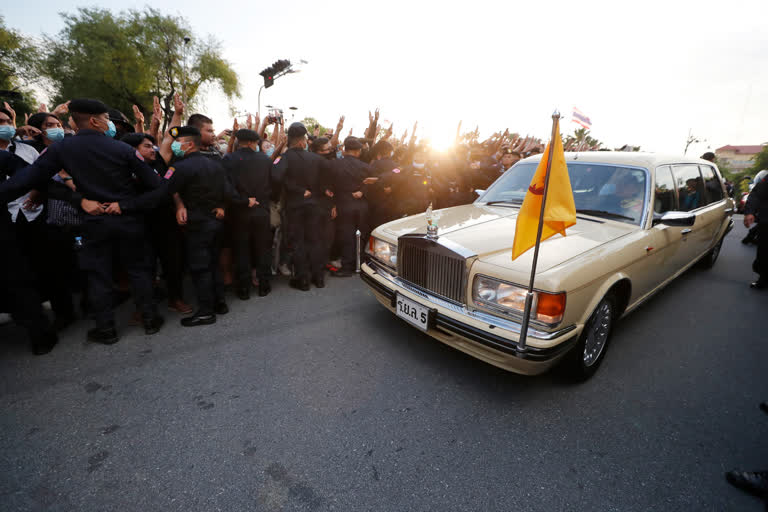Bangkok: Thailand's prime minister rejected calls for his resignation Friday as his government stepped up efforts to stop student-led protesters from rallying in the capital for the second day in defiance of a strict state of emergency.
Police closed roads and put up barricades around a major Bangkok intersection where the protesters have vowed to gather again to push their cored demands, including that Prime Minister Prayuth Chan-ocha leave office, the constitution be amended and the nation's monarchy undergo reform.
Police in riot gear moved into the area, while malls in the normally busy shopping district were closing early. Nearby mass transit stations were being closed to stop crowds of protesters from getting near the area. In addition to the security measures, heavy monsoon rains threatened to keep crowd numbers lower than the thousands that gathered the night before.
The student protesters said they would simply rally just down the street at another large intersection.
Read also:Thai democracy protesters march despite police, rival groups
Prayuth's government declared a strict new state of emergency for the capital on Thursday, a day after protesters gathered in a different part of the city heckled a royal motorcade. Such actions are unprecedented in Thailand, where those waiting for a royal motorcade regularly sit on the ground or prostrate themselves.
The state of emergency outlaws public gatherings of more than five people and bans the dissemination of news that is deemed to threaten national security. It also gives authorities broad powers, including detaining people at length without charge.
Some 10,000 protesters defied the decree Thursday to rally at the Bangkok intersection.
A number of protest leaders have already been rounded up since the decree went into effect. On Friday another two activists were arrested under a law covering violence against the queen for their alleged part in the heckling of the motorcade. They could face up to life in prison if convicted.
Read also:Thailand stalls China's submarine deal
The movement took a stunning turn in August, when students at a rally aired unprecedented criticism of the monarchy and issued calls for its reform. Using direct language normally expressed in whispers if at all, the speakers criticized the king's wealth, his influence and that he spends much of his time outside the country.
Thailand's royal family has long been considered sacrosanct and a pillar of Thai identity. King Maha Vajiralongkorn and other key member of the royal family are protected by a lese majeste law that has regularly been used to silence critics who risk up to 15 years in prison if deemed to have insulted the institution.
